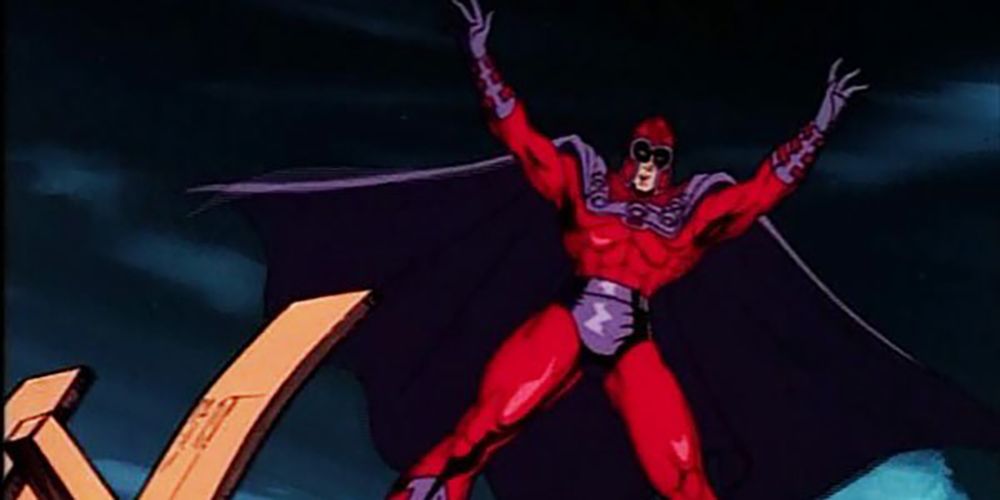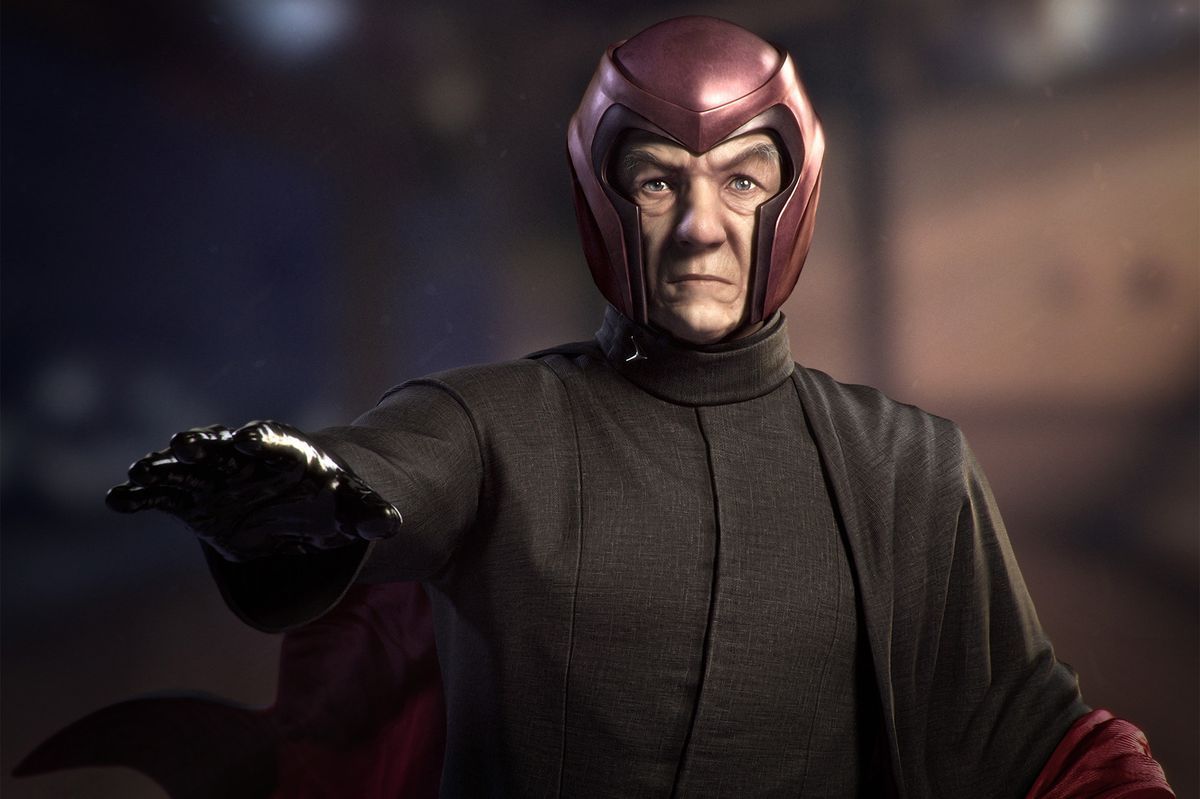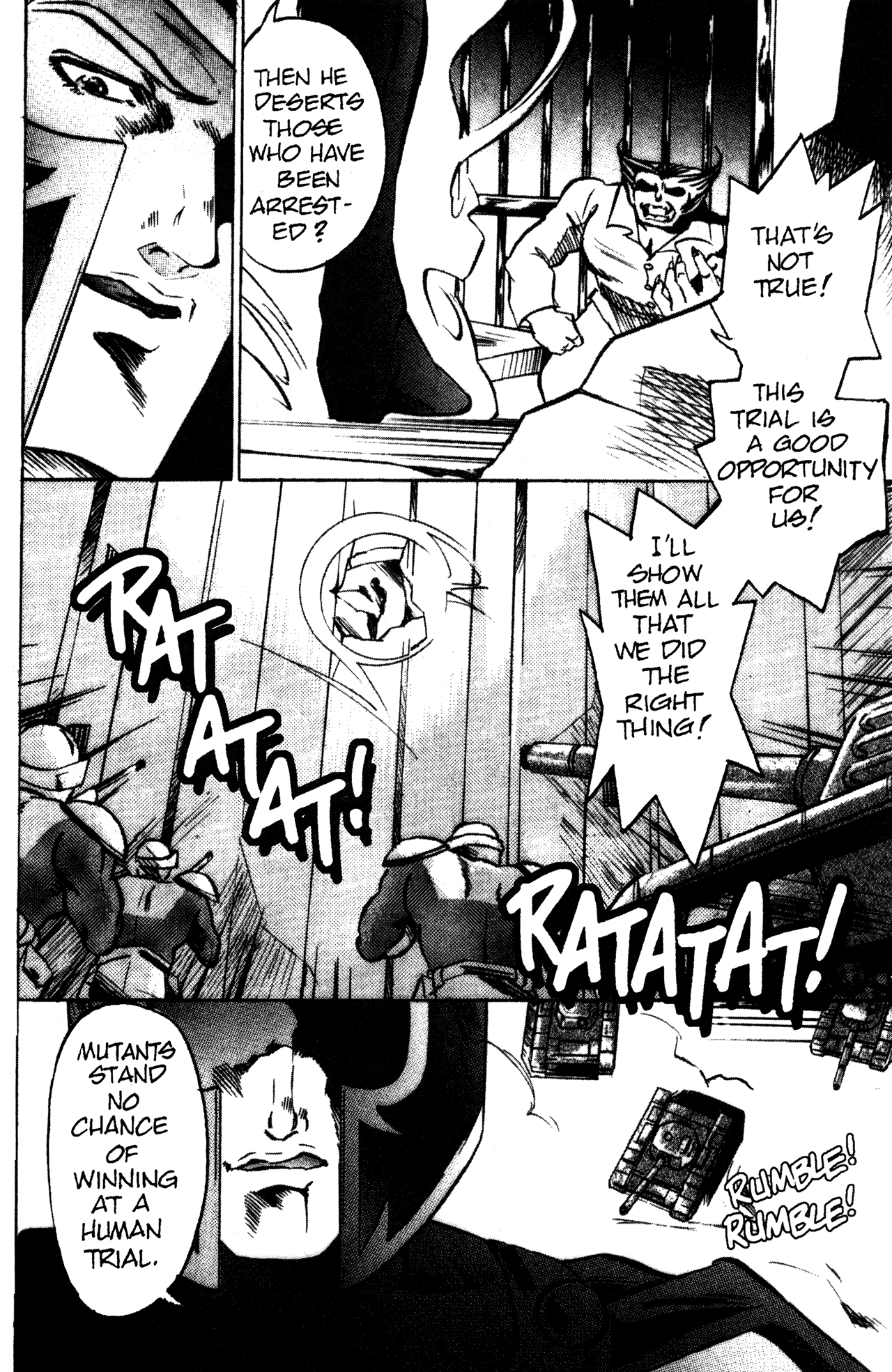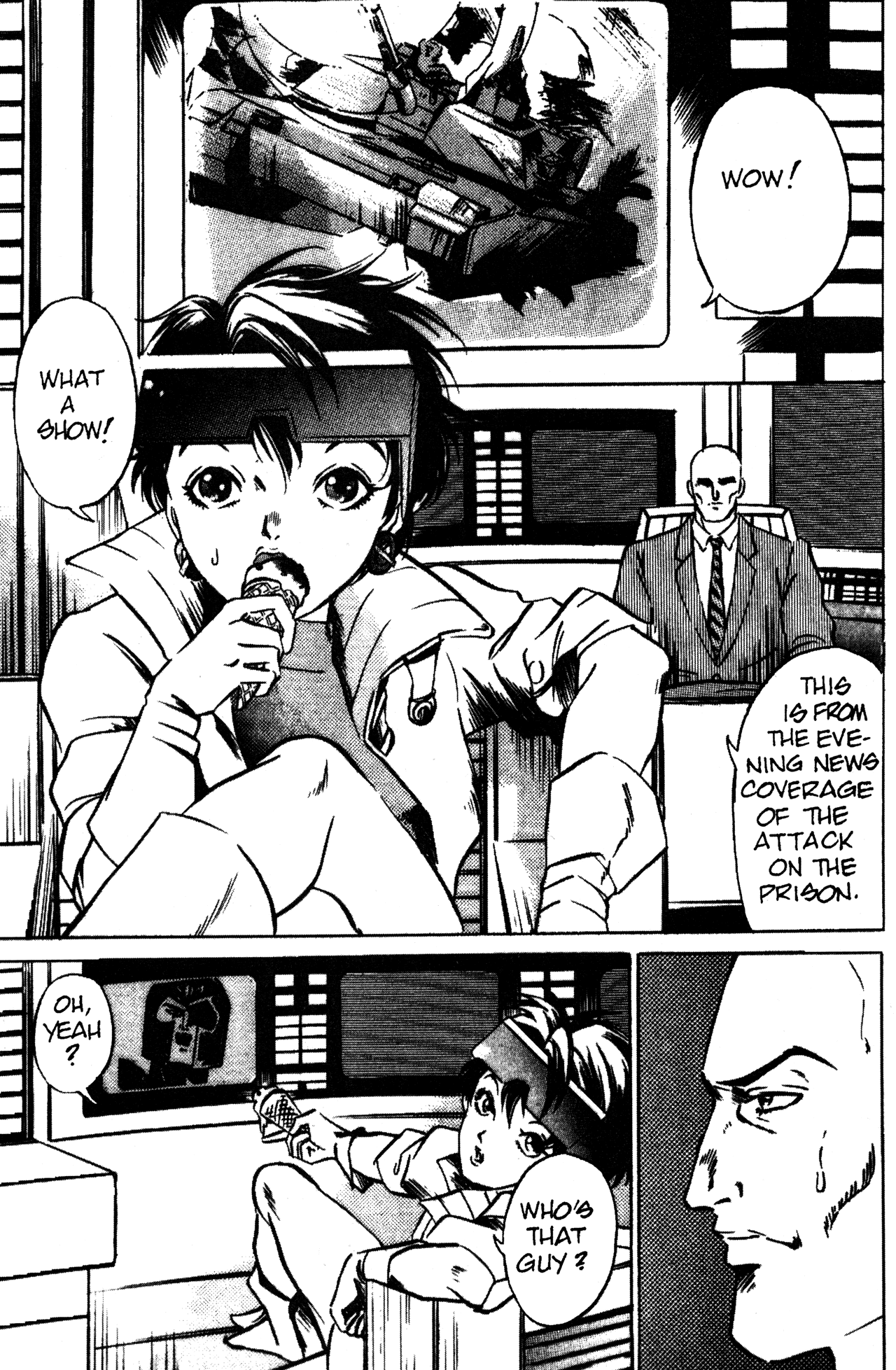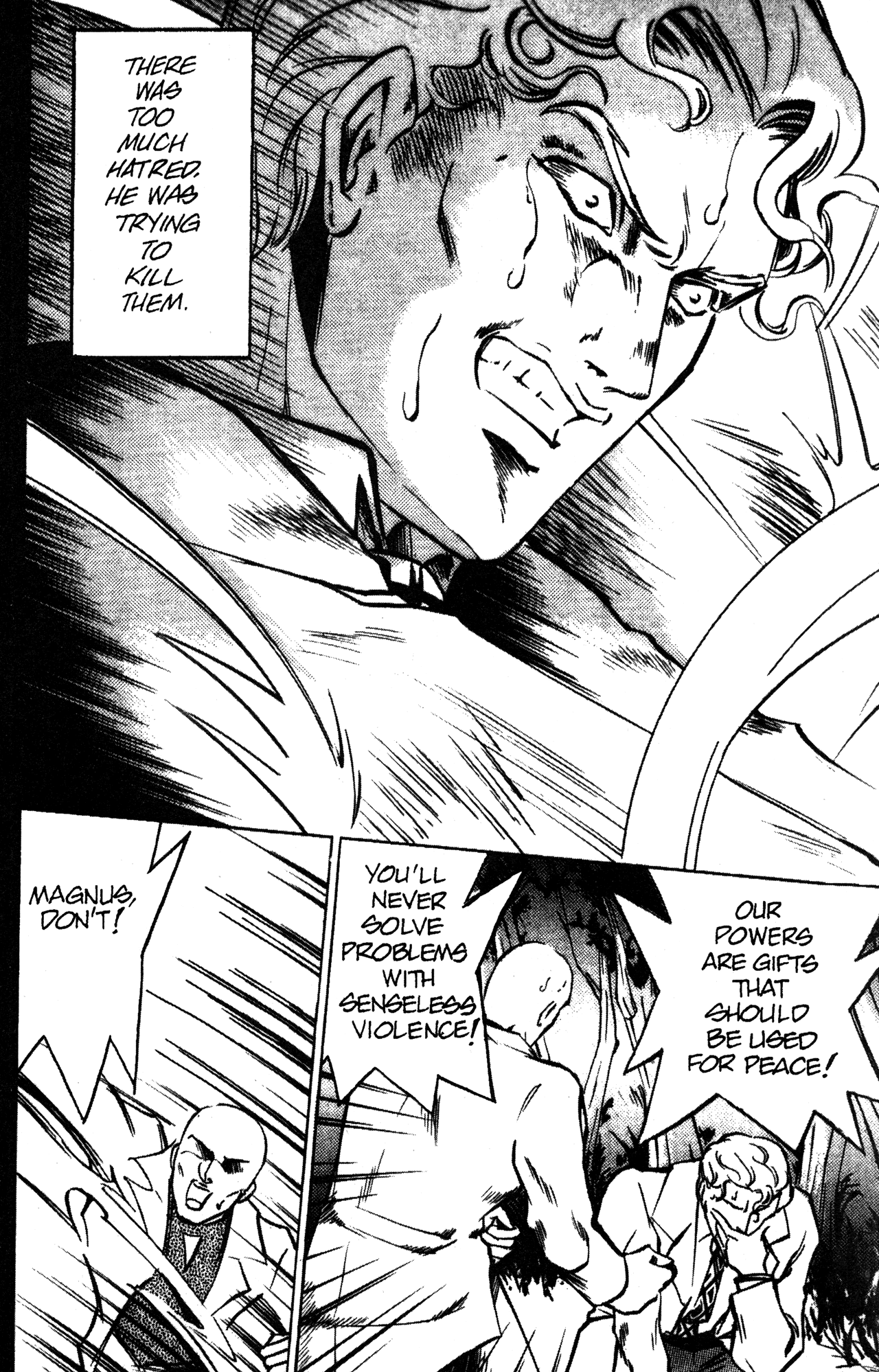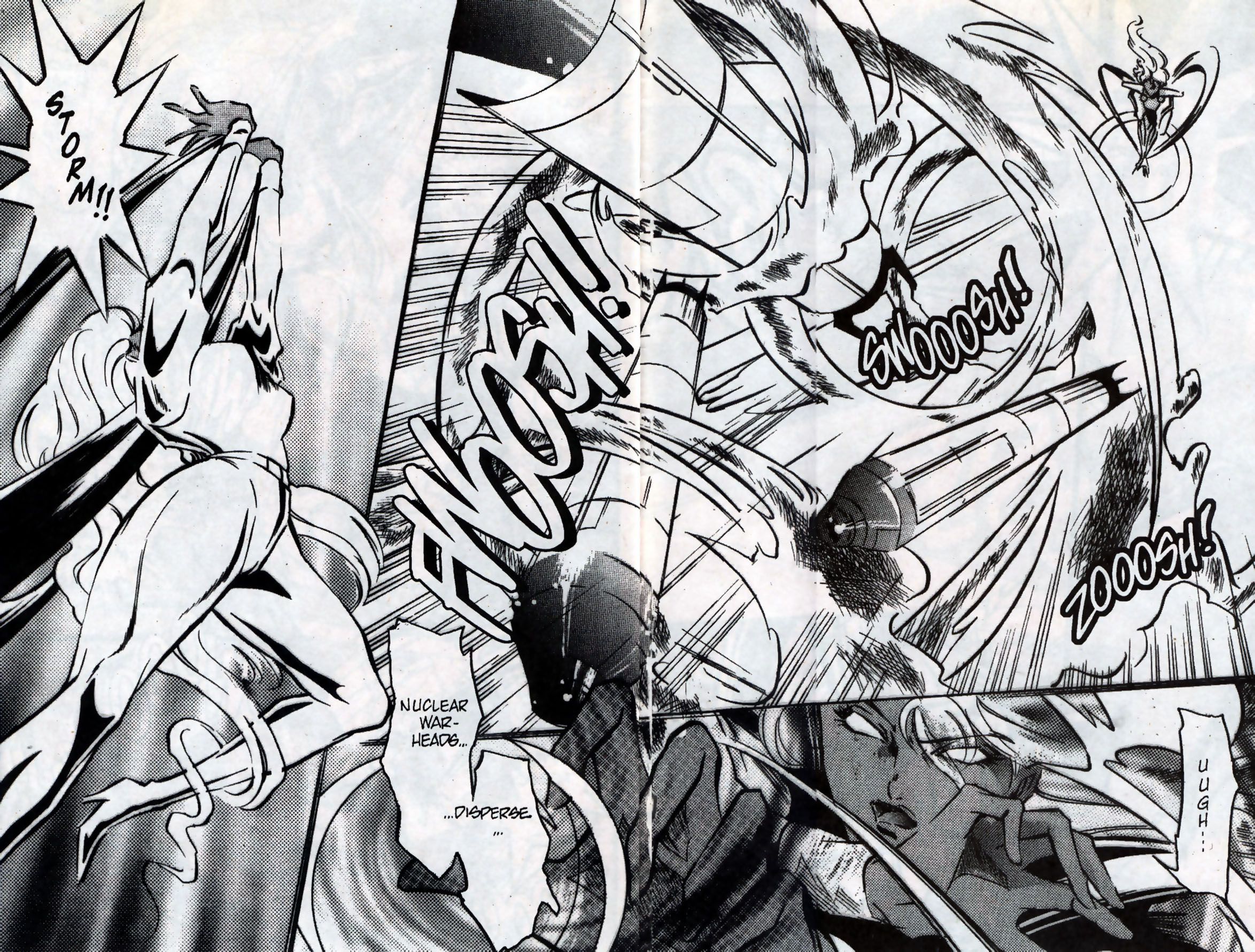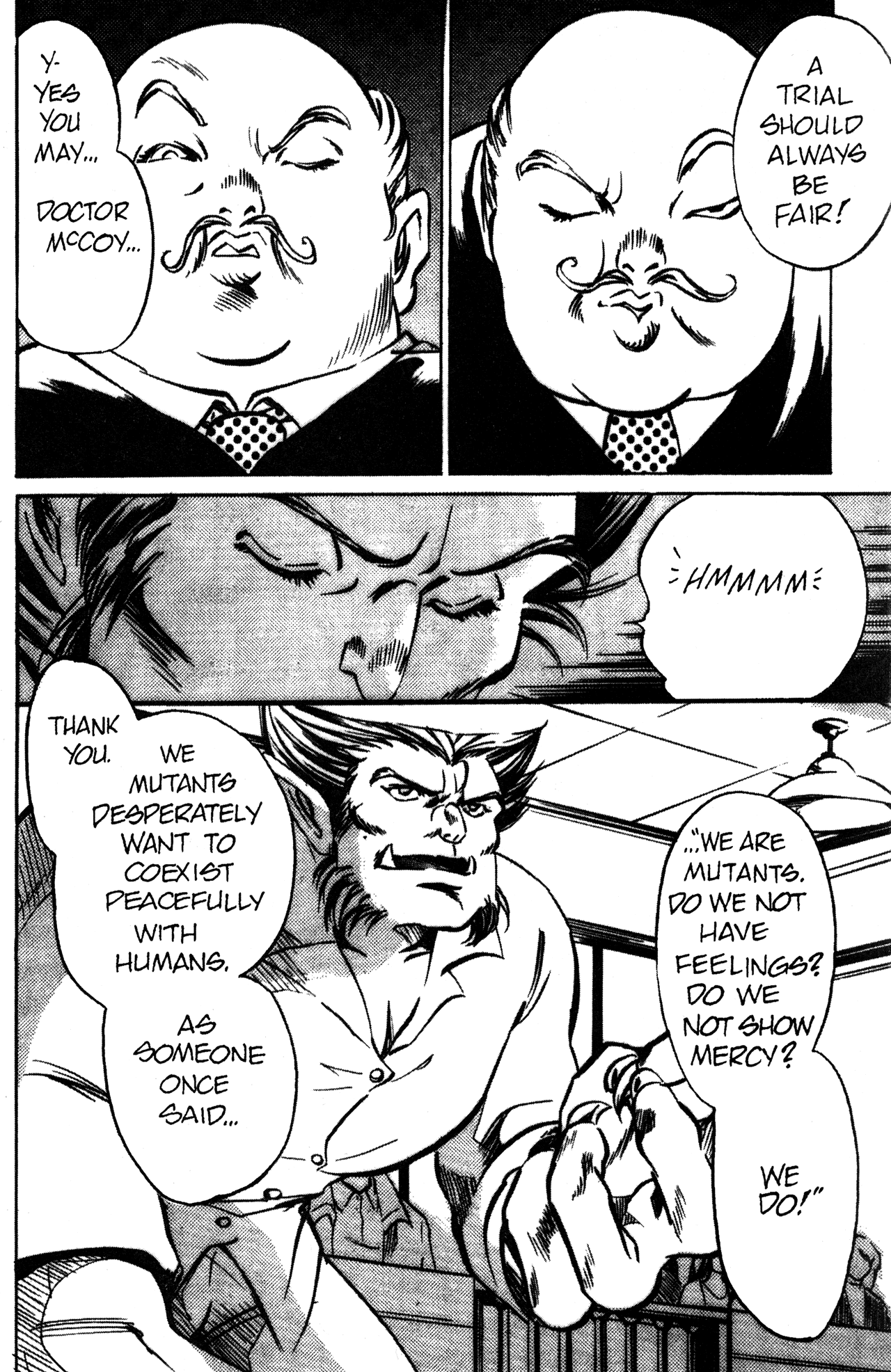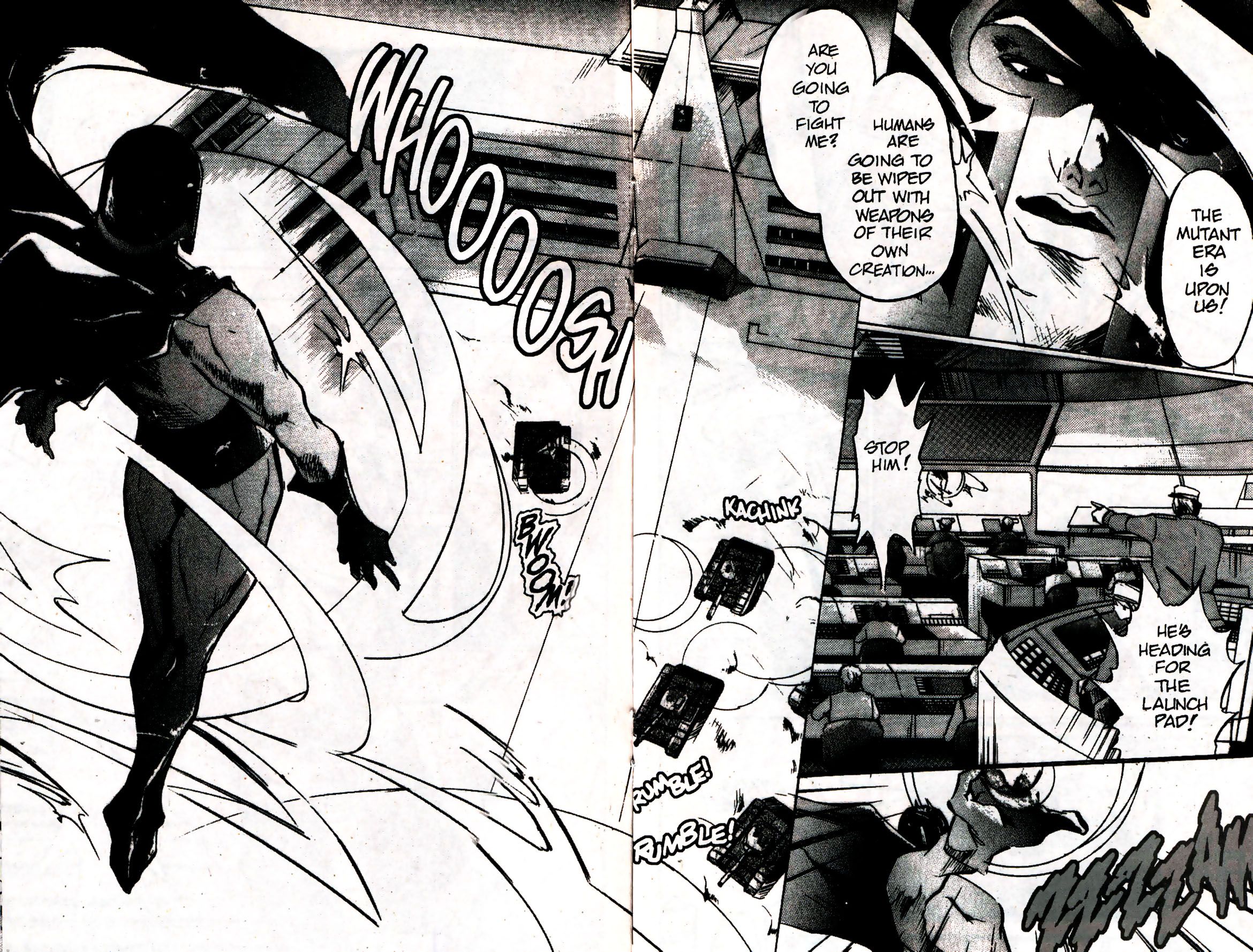Welcome to Adventure(s) Time's 117th installment, a look at animated heroes of the past. This week, we're returning to the manga adaptation of the classic X-Men: The Animated Series. And if you have any suggestions for the future, let me hear them. Just contact me on Twitter.
It's interesting that X-Men didn't open its run with a Magneto story. It'd seem to be the more obvious means of introducing viewers to the basics of the human/mutant conflict by presenting an extremist mutant as the villain. It's the track taken by both the series' easy for kids to digest pilot, Pryde of the X-Men, and the more serious 2000 X-Men feature film.
By using the mutant-hunting Sentinels as the villains, however, the producers were able to present the mutants as the underdogs from the beginning. The viewer's given a sense of the discrimination the characters experience, and now in the follow-up arc, we meet the mutant who's unwilling to tolerate this nonsense.
We should also note the circumstances behind the premiere of this episode, "Enter Magneto," from November 27, 1992. After only two "sneak peek" episodes, X-Men: The Animated Series was popular enough to merit a special airing during Thanksgiving weekend of 1992. Tying in with the 1992 presidential election, FOX aired a promotion encouraging viewers to vote for a new episode of their favorite show to air over the holiday. Kids picked up ballots at McDonald's to vote for their favorites, and X-Men scored at the top of the polls. A great indicator of the show's popularity, but FOX was positioned to air another episode that wasn’t quite ready for broadcast. Luckily, this one only required minor corrections during the reruns, unlike the two-part opening.
The story, from writers Jim Carlson & Terrence McDonnell, is adapted in issues #5-6 of X-Men: The Manga, which reprinted material from Japan's Bamboo Comics for Western readers in 1998. "Enter Magneto" (adapted by writer Mutsumi Masuda and artist Koji Yasue) opens with Magneto attempting to free Beast from prison, only to discover the X-Man actually desires his day in court.
The manga translation rarely features exact dialogue from the series, but the intent is fairly consistent throughout these issues. The only real glitch this issue comes when Beast claims Xavier will be standing trial with him, a misreading of Beast's actual dialogue, which only states it's important to both him and Xavier that mutants abide by society's rules.
One surprising bit of consistency is in the next scene, which features Xavier recounting Magneto's attack to Jubilee. The manga adaptation even includes her ice cream cone, which is a minor but appreciated touch.
Xavier details his history with Magneto, giving viewers an abbreviated version of their first meeting as hospital workers, based on the events of Uncanny X-Men #161, from writer Chris Claremont and artist Dave Cockrum. Xavier explains Magneto lost his family during "a war," and that remnants of this regime were the ones who attacked the hospital where they worked. This is of course a reference to World War II and the Nazis, which were considered taboo for Saturday morning TV. Still, the context is clear. Magneto lost his family in some form of ethnic cleansing, and whatever peace he hoped to find in this hospital is forever lost to him.
The manga adaptation fleshes this sequence out a bit, adding a level of intensity that suits the material.
Later, during Beast's bail hearing, Sabretooth abruptly interrupts the proceedings and is injured by the guards. (We'll later learn he's doing this on orders from Magneto.) Against Wolverine’s wishes, Cyclops takes Sabretooth to the mansion. Wolverine's feud with Sabretooth was a major element of the comics canon at the time, and while it might seem an awkward fit for the animated series, the producers manage to convey a long, violent history between the pair. It's unlikely any other FOX cartoon before this featured a hero sneaking into the villain's hospital room for the express purpose of killing him (only to be stopped by his teammates, of course.)
As Wolverine argues with Xavier, Magneto attacks a missile facility, using his powers to launch the nuclear missiles he hopes will spark a human/mutant war. Magneto soon encounters the X-Men, and while the adaptation conveys the basics, the dialogue skips what could be Magneto's finest line on the show: "Better to die on our feet than live on our knees."
Storm's prepared to sacrifice her life in order to stop the missiles, detonating them high above the public, but Xavier mentally grants her the knowledge needed to shut them down without detonation. Wolverine catches the exhausted Storm, affirms she's okay, and even calls Cyclops his "buddy" as they head back home.
In the span of a few minutes, the episode's captured so much of what drew readers to the comics. The character dynamics, the internal debates, the devotion of the cast, and the complexities of heroism. The dialogue isn't snarky or cute; it's earnest, and appropriate for the show's themes. Interestingly, the manga adaptation goes out on this scene, cutting the final moment -- Magneto's tease that he'll be returning soon enough.
DESIGN-Y
The judge in Beast's trial is another example of the manga adaptation tossing out designs for the supporting characters. The stern judge with tight curls is replaced with a bald extra from a Speed Racer cartoon. Still, it is a memorable design.
CONTINUITY NOTES
Both Beast and Storm indicate they've never met Magneto, yet later flashbacks on the series will establish him as a longtime opponent for the team. We also have Cameron Hodge appearing as Beast's attorney, a nod toward his origin in the comics as a friend of the original X-Men (who later turns on them, naturally.) The transition of Hodge from friend to foe is never dramatized, however, when he next appears in the episode "Slave Island."
HEY, I KNOW THAT VOICE
David Hemblen, who's appeared in numerous Canadian live-action productions, provides Magneto with the gravitas the character deserves. It's been reported Bryan Singer was interested in casting Hemblen as Magneto in the X-Men film, but Hemblen was already busy with the television series, Earth: Final Conflict.
APPROVED BY BROADCAST STANDARDS & PRACTICES
"Kill" was typically banned from the show, so "destroy" appears several times as a replacement. Wolverine's declaration that Sabretooth "wasted" friends of his is about as close as the show gets here (while staying true to Wolverine's speech pattern, admirably). Xavier's line "I should've stopped Magneto when I had the chance!" swaps "stopped" with "killed" in the manga adaptation, giving it a significantly different context.
OVER THE KIDDIES' HEADS
Magneto's greeting to the X-Men is an allusion to Shakespeare's The Tempest: "How beauteous mankind is! O brave new world / That has such people in't!"
"FOR SOME, A WAR IS NEVER OVER"
The producers have stated in the past that their Magneto was an amalgam of Magneto's seemingly contradictory portrayals in the comic. Magneto maintains his tragic past (with the specifics left vague enough to appease the censors) and carries himself with a certain nobility, dramatized perfectly by David Hemblen. Still, his motivations remain unchanged from his 1963 debut -- he wants to eradicate all humanity.
And while the X-Men encounter their ideological opponent, a few subplots appear to maintain the series' momentum. Wolverine wants to know why he must forgive grudges against his hated foe, while the X-Men are sent on a mission to stop Xavier's. Beast is left in prison, bravely asserting his faith in a system we later see is unconcerned with offering a fair trial. Then again, Beast is guilty of his charges; while his acts aren't as malicious as Magneto's, he did in fact break the law. Contrasting his good intentions against Magneto's radicalism is a smart move by the producers.
For fans of the show, the manga adaptation is actually worth your time. There are moments in the episode that pass by too quickly, or don't truly convey the script's intensity. The manga expands on a few of the scenes, and presents the material in a raw form that suits the severity of the script. Plus, manga-Magneto just looks cool.
Hey, my novel Black Hat Blues, is now available on Audible! If you follow this link, you can check it out with a free trial!

